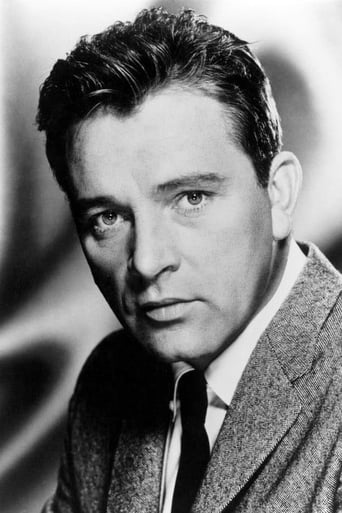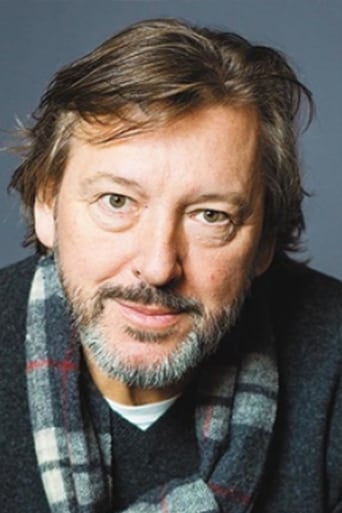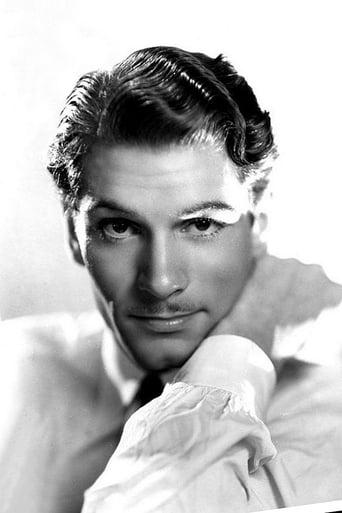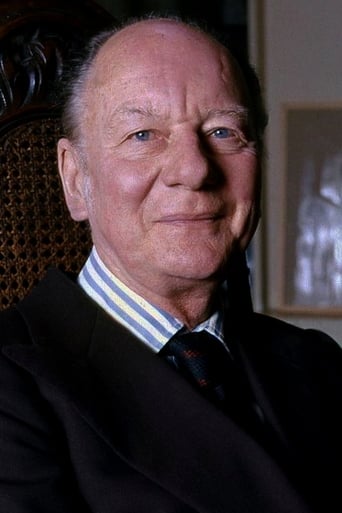Hayleigh Joseph
This is ultimately a movie about the very bad things that can happen when we don't address our unease, when we just try to brush it off, whether that's to fit in or to preserve our self-image.
theowinthrop
I will admit that this miniseries was almost too much - but the subject was such an incredible one that the viewer who gave it a chance really got to appreciate the production. My only regret is that I saw the abbreviated version - not the nine hour version. Also, to keep in mind, this was the last role in the career of Richard Burton, and as such it was certainly large enough to be a fitting monument to his own career.Richard Wagner was that rarity: a great composer who became a serious multi-cultural figure in his own lifetime. That was because, unlike any of his rivals in the field of opera composition (including his only real rival, Giuseppi Verdi) Wagner did more than write music. He wrote the librettos of his operas. You can say they were the closest to fully "organic" works of music by any opera composer of the 19th Century.* Besides that, Wagner was (at least up to 1848) a political revolutionary, getting involved in revolutionary activities in Munich (then the capital of the Kingdom of Bavaria) and Vienna (then the capital of the Austrian Empire. He would write political pamphlets on German nationalism throughout his lifetime. He would also write (and far less happily) pamphlets attacking the Jews - which in time would be picked up by fellow German anti-Semites, such as Adolf Hitler. If you recall in the film HELLO DOLLY, when Vandergelder (Walter Matthau) is marching in the huge 14th Street Parade, there is a float in honor to Wagner from a German society. This was not usual with other prominent composers in the 19th or 20th Centuries (even Beethoven or Brahams or Tschaikowski).[*Back in 1972, I was in the rare book and map room at the old B. Altman Store on Fifth Avenue and E. 34th Street. I was shown a manuscript for Lohengrin that was being sold. It was the first published manuscript in Italian of that opera. Wagner's writing was on some of the pages - he was re-translating the Italian translation of his lyrics back into German!]This fellow, flaws and all, was a really fascinating one. He was more than just the average racist and bigot. He was a scoundrel, frequently spending huge sums of money that did not belong to him - and leaving some misguided arts patron footing a huge debt at the end (this happens in the series when Wagner has to flee Vienna in the 1860s after his debtors threaten court action). He was over sexed, betraying his first wife many times (even before he betrayed his best friend Von Bulow, the conductor, by wooing away the latter's wife Cosima). In the end even Cosima, who shared her husband's vitriolic hates and super-nationalism was betrayed by him...although she had the privilege of watching him die of a stroke. Burton played the role well, showing the mental strength and the character weaknesses of a man who, for better or worse, helped shape the culture (or kultur) of Europe for seventy years. It was not only dramatic moments, such as his confrontation with officialdom (John Guilgud as one of several Munich government ministers who try to corral or deal with him) but comic ones, such as his dealing with his firmest ally, the ...err...eccentric King Ludwig II of Bavaria (Lazlo Galfi). The scene when Ludwig arrives incognito to learn at the feet of his maestro in Switzerland is pure high comedy, with a perplexed Burton and a nervous Vanessa Redgrave (Cosima) wondering how to handle having this royal nut without hurting his feelings (and even probing whether his desire to abdicate is worth pursuing - it turns out it isn't!). In the end Ludwig did create the permanent Bayreuth festival center for Wagner's operas to be performed. Like his three mad castles in Bavaria, the Bayreuth center remains active.The series also strengthens our grasp on another cultural icon of the age who was briefly in tandem with Wagner: Friedrich Nietzche (Ronald Pickup - who curiously portrayed Verdi in a mini-series a few years earlier). Nietzche gradually became disillusioned by the great Richard. The theory of the superman was a universal idea, not specifically for Germans (as Wagner suggested). More interesting was the effect of Wagner's racism. Nietzche was anti-Semitic too, but after hearing the table talk at Richard and Cosima's parlor (which suggested hideous mass murder ideas), Friedrich started realizing there was a limit to racism before it was too late - he repudiated Wagner before the latter's death in 1883. But by then most of Wagner's friends had repudiated the man.As said before the super racists like Hitler picked up on Wagner's crack-brained racial ideas. Hitler would place his full seal of approval on Wagner in the 1930s and 1940s by attending performances at Bayreuth, acting like a member of the composer's family (they referred to him as "Uncle Wolf" - a suitable nickname, unless you like wolves). However, one questions Hitler's actual admiration for Wagner's music, with it's use of leitmotifs and themes, and odd sexual habits (incest among them). It is known that after the second act of the operas Hitler would leave...he is not known for sitting through an entire performance. Given that some of the operas run over five hours, this is understandable.For all the flaws of the great composer, the music remains to entice us into listening. Burton caught the genius and the flaws quite well. Redgrave, Pickup, Guilgud, Richardson, Olivier (again using his "Bassermann" accent - see I WAS A CRIMINAL)do well in the series. I recommend it - it does show much that is glossed over in music appreciations courses.
crawfo
Beautifully visualised, acted and scripted - whoever said "boring script" must set Terminator or Rambo as his ideal. My chief criticism: the death of King Ludwig was oddly placed (too early making that part of the film disjointed). Perhaps too long but the subject merited it; I saw it in a club showing, but would have preferred to spread it over 2 days.
fxphreak
I quickly bought the 300 minute version listed here when it first came available. Although I love Wagner and his music I almost couldn't get through the tapes. Terrible stuff. How could they do this? Then I found the answer.The original mini-series was 9 hours long. They cut FOUR HOURS out of the story. I've seen the whole series and now I can say -- GREAT STUFF. Well, if your a Wagner fan to begin with, that is. It really is MUCH better than the edited version.I hope I never get an enemy so evil I want to give them my 300 minute Wagner tape set. I hope I find a real friend who will buy me the 9 hour version as a gift!
DeeDee-10
With a stupendous cast headed by Richard Burton, this film takes on the life of Wagner and seems to raise the same complaints his audience had regarding his operas: long bacchanals of passion and excess. Art imitates life? You bet! Burton's monologues are brilliant as usual (I'm a long-time Burton fan) full of emotion and brilliantly performed. As to why everyone including royalty continued to support and love his music, chosing to ignore for the most part his despicible life in which he treated everyone shabbily including his wife, lovers, patrons, etc. . . .is it any different today? Don't we love our music/film icons ignoring their dark side? This film also made me want to rush to history books to read more about the era, especially about the young king of Bavaria. Take two nights to watch the video.




